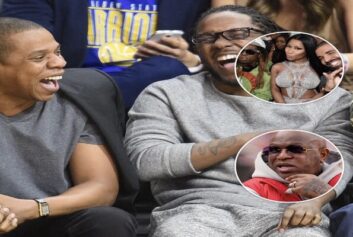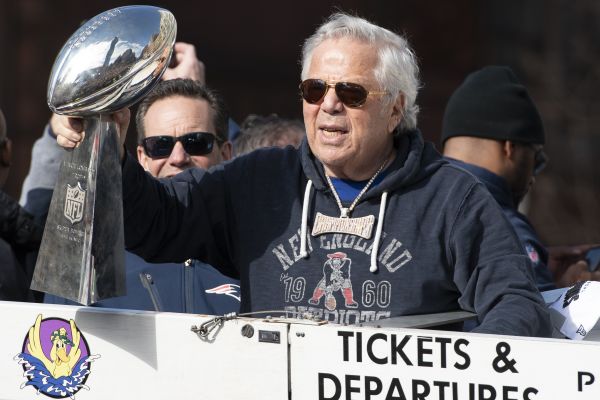Former Boston Celtics player Antoine Walker blew $108 million in career earnings trying to imitate Jay-Z and Sean “Diddy” Combs, known as Puff Daddy at the time.
The three-time All-Star declared bankruptcy in 2010 and in 2013 regained control of his financial life. He’s hoping his story, which has resurfaced in some outlets such as Moneywise, can encourage other pro athletes to get control of their finances early so they don’t face the same difficulties.
How Did Antoine Walker Lose $100M
“It’s a cultural thing, and I like to speak for myself. When I came out, Jay-Z, Puffy, all the rappers, what they did is what I wanted to do,” said Walker on the “I AM ATHLETE Podcast” in February 2022. “You see them with the big jewelry, the chains, nice cars, you see the videos. I am looking at all that and thinking when I get it, I am doing that. When I had a lot of money, I also had a lot of fetishes. I had a car fetish. I would have eight to 10 cars at one time. I had a watch fetish. When I came out, Jacob the jeweler was the man; everyone shopped with Jacob. I used to get all the new watches. I had 15 to 20 watches at one time, and I couldn’t wear them all,” he continued.
Managing Millions Isn’t Easy: Walker Splurged, Made Poor Investments
It’s not easy for athletes who come from humble beginnings to handle money and fame. It’s a tough road to navigate.
Most pro athletes have been hustled their entire lives, which makes trusting someone extremely difficult.
It’s easy to suggest that an athlete hire a financial advisor, lawyer, agent, etc. and let that professional guide him or her. But many times, those are the people who steer the athletes wrong and steal from them.
Add in youth, hubris, bad investments and business deals, and the trappings of modern celebrity, and it’s a recipe for financial ruin.
“I built my mom a house from the ground up. I spent $4.1 million on that crib, 15,000 square feet with the indoor pool; everything you can ever imagine was in the house. When you go through the bankruptcy, you have a decision to make. At the time, I owned four homes. I asked my mom what she wanted to do, and that was the first time I broke down was when she said ‘let the house go.’ I couldn’t believe it, and that was the lowest point because that is something you never want to do. You never want to see your mom work again and see your mom go through anything of that nature, so that was probably the lowest point.”
Walker Lives A Different Life Now
In addition to exorbitant spending habits, Walker’s attempt at expanding his business portfolio beyond his NBA earnings also fell short of the rim. The rest of his money was lost in real estate investing when the market tanked after the Great Recession.
That led him to declare bankruptcy in 2010. He was even banned from several casinos across the country for money owed.
In 2011, he was sentenced to five years of probation and ordered to pay $770,050 in restitution to three Las Vegas casinos after pleading guilty to failing to repay gambling debts.
Walker, however, was just as resilient off the court as he was on the court his during Two and a half years later, he had bounced back.
Today, he helps others avoid the money issues he’s overcome. He’s a consultant with Edyoucore, a financial literacy company that focuses on teaching athletes how to manage their money.
Walker now works for FS1 as a basketball analyst and consults for Edyoucore, which focuses on financial literacy for athletes.
He no longer has the means to live a lavish lifestyle, but he’s found peace and comfort in knowing he’s living comfortably.
“You are the CEO of your company,” Walker told CNBC in 2021. “You have to take responsibility of what you do, and you have to be on top of it. I may never again make $108 million but I can have a comfortable lifestyle. That’s been my mindset as I got back on my feet.”
In 2020, Walker released a documentary called “Gone In An Instant” about his financial struggles and issues.
More news from our partners:



